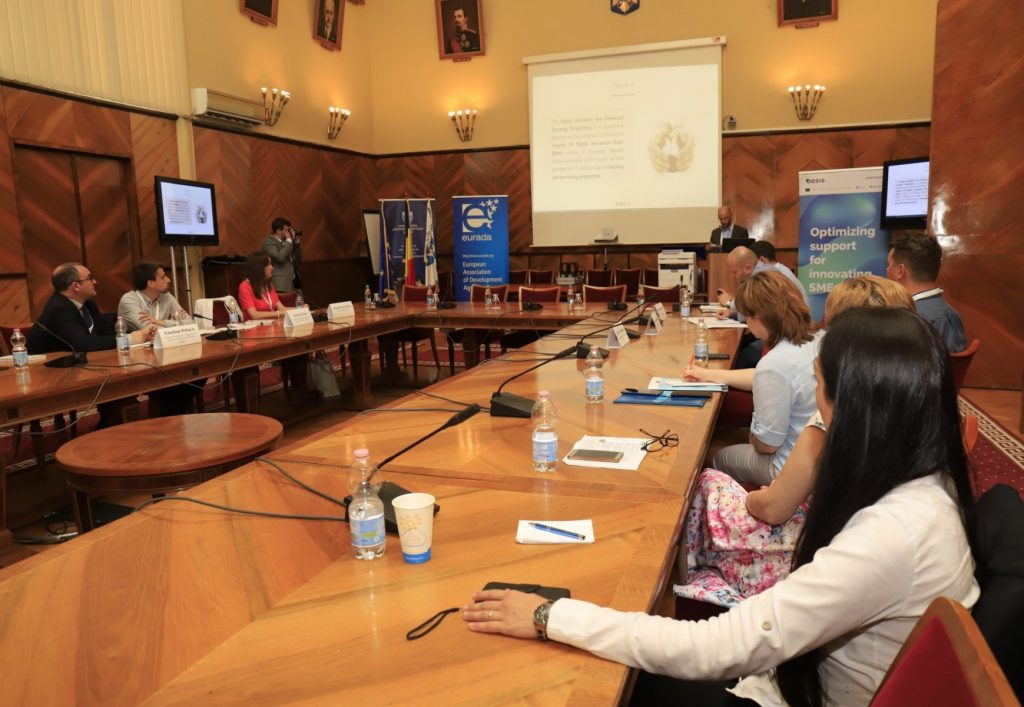
The OaSIS Project was presented during the WIRE 2019 Conference that took place in Iași (Romania). A great opportunity to disseminate the results of our project, as the aim of this conference was to provide a platform for policy makers, public authorities, knowledge centers and enterprises from all over Europe to discuss R&I practices, challenges and opportunities throughout the European regions, with a direct view on the current and future EU funding programs.
OaSIS had the chance to take part of the parallel session Academic Panel “Research with Economic Purpose”. The Centre for Research in Finance of the Faculty of Economics and Business Administration from “Alexandru Ioan Cuza” University of Iaşi and Romania’s North-East Regional Development Agency organized a panel conference dedicated to current issues and trends in research with an economic purpose and in training the skills for the future. The panel will gathered authors of the scientific works submitted and accepted to the dedicated call for papers associated to WIRE X 2019. All the papers presented at the conference are eligible to be considered for publication in a thematic issue of the Review of Economic & Business Studies. The OaSIS team is currently preparing an article on segmentation techniques for innovation support services.
Project Manager Antoni Pastor (EURADA) showcased how the tool developed by the OaSIS Project can help regional policy makers enhance the services they provide to the SMEs in their region. In particular, the audience discovered how Big Data Analysis can aid regional practitioners to rank and classify companies to discover high revenue, high employee growth or even link those results with the regional RIS3 strategy. Finally, some successful examples on segmentation were presented by Director of EURADA Esteban Pelayo. The panel conference also covered interesting topics related with OaSIS, such as innovation services for regional development, societal impact of research and innovation, responsible research and innovation within industrial clusters, innovation in teaching and learning, training the skills for technological transfer, and SMEs qualification for EU funding, among others.

